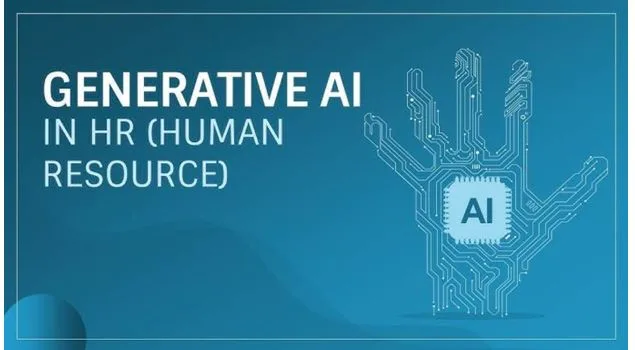Generative AI in HR: Redefining the Future of Talent and Transformation
Human Resources is undergoing one of the most significant transformations in its history. The integration of Generative AI in HR is no longer a distant concept—it’s a present-day reality shaping how organizations attract, develop, and retain talent. From automating administrative processes to enhancing employee experience and workforce analytics, generative AI unlocks new levels of efficiency and intelligence across HR functions.
This article explores how Gen AI in HR is reshaping the employee lifecycle, the opportunities and challenges it presents, and the practical steps enterprises can take to adopt this technology effectively.
The Rise of Generative AI for HR
The last few years have witnessed an exponential rise in the capabilities and adoption of Generative AI in HR. Unlike traditional automation tools that execute predefined rules, generative AI can understand, create, and adapt—making it especially suited to HR’s complex and human-centric tasks.
Today’s leading HR teams use Gen AI to analyze workforce data, generate personalized employee content, assist in performance reviews, and even simulate workforce scenarios for strategic planning. For example, recruitment teams leverage AI to generate tailored job descriptions and candidate outreach messages, cutting hiring time by up to 40%. Similarly, learning and development leaders use AI to build adaptive learning paths that evolve with each employee’s career trajectory.
How Generative AI Is Transforming Key HR Functions
- Talent Acquisition and Recruitment
Generative AI tools are revolutionizing how organizations source and assess talent. Intelligent systems can automatically draft job descriptions, screen resumes, and identify top candidates using predictive analytics. By generating structured interview guides and candidate summaries, Gen AI for HR ensures hiring decisions are faster, fairer, and data-driven.
- Employee Onboarding and Experience
Once employees join, AI-powered assistants can guide them through onboarding with personalized content, FAQs, and real-time support. Generative AI systems like AI XPLR™ enhance onboarding journeys by creating dynamic, role-specific training materials that adapt to employee profiles, reducing manual HR intervention and improving engagement from day one.
- Learning and Development
Upskilling is one of HR’s most critical mandates, and Gen AI is making it smarter. By analyzing employee skills, job requirements, and performance data, platforms such as ZBrain™ can design individualized learning paths and even generate course materials. This enables organizations to build agile, future-ready workforces capable of adapting to rapid technological and business changes.
- Performance Management and Feedback
AI-driven tools can summarize performance data, identify skill gaps, and even suggest development plans based on continuous feedback. Generative models help HR leaders move from annual reviews to real-time performance insights, making feedback more actionable and equitable.
- Workforce Analytics and Planning
The integration of Generative AI in HR allows organizations to simulate workforce trends, forecast attrition risks, and evaluate different talent strategies. This predictive intelligence supports better decision-making in workforce planning and budgeting, ensuring alignment between talent strategy and business objectives.
The Role of Generative AI Consulting in HR Transformation
While the potential of generative AI is immense, achieving meaningful results requires a strategic approach. This is where generative AI consulting becomes essential. Expert consultants help organizations move beyond experimentation to structured implementation—identifying high-impact use cases, defining governance models, and aligning AI initiatives with broader HR transformation goals.
Consulting partners bring proven frameworks and AI implementation services to ensure scalability, compliance, and measurable ROI. From building AI roadmaps to deploying custom HR assistants, Gen AI consulting bridges the gap between technology promise and enterprise reality. The most successful implementations combine human expertise with machine intelligence—enhancing rather than replacing HR professionals.
Ethical and Governance Considerations
As with any transformative technology, the rise of generative AI introduces new ethical responsibilities. HR teams must ensure fairness, transparency, and data privacy at every step. This includes auditing AI models to avoid bias, maintaining explainability in decision-making, and adhering to evolving data protection regulations.
Responsible adoption also means training HR professionals to understand AI capabilities and limitations. Clear governance frameworks, defining ownership, accountability, and compliance measures are critical to building organizational trust and employee confidence in AI systems.
Building the AI-Enabled HR Function: A Practical Roadmap
Organizations looking to integrate Generative AI for HR effectively can follow a structured roadmap:
- Identify High-Value Use Cases – Start with processes that are repetitive but data-rich, such as recruitment or policy documentation.
- Leverage AI Platforms and Tools – Use enterprise-grade platforms like AI XPLR™ to explore AI opportunities within your HR ecosystem and quantify potential ROI.
- Pilot, Measure, and Scale – Launch small-scale pilots using frameworks from AI implementation services, evaluate measurable outcomes, and scale successful initiatives across regions or functions.
- Empower HR Teams with Data Literacy – Train HR professionals to interpret AI insights and use them in decision-making.
- Establish Governance and Oversight – Collaborate with legal and compliance teams to ensure responsible and ethical AI usage.
By following this approach, enterprises can accelerate transformation while minimizing risk.
Real-World Example: From Manual HR to Intelligent Automation
Consider a global enterprise that implemented Gen AI in HR to modernize its workforce planning process. Previously, compiling headcount forecasts across business units took weeks. By introducing generative AI models through ZBrain™, the company automated data collection, trend analysis, and report generation. The result: a 70% reduction in processing time and significantly improved decision accuracy.
Such examples highlight the tangible value of integrating AI into HR—not just in efficiency gains, but in enabling HR leaders to focus on strategy, culture, and innovation.
The Future of HR with Generative AI
As technology matures, the role of HR is poised to become even more strategic. Gen AI for HR will evolve from automating tasks to augmenting decision-making, enabling predictive workforce strategies and highly personalized employee experiences. The collaboration between humans and AI will define the next generation of HR excellence—where analytics, empathy, and automation coexist seamlessly.
However, sustained success will depend on continuous learning, adaptation, and strong partnerships. Working with experienced generative AI consulting firms ensures that organizations stay ahead of regulatory changes, technical advancements, and evolving employee expectations.
Conclusion: Embrace the Future of Work
Generative AI is not just changing HR—it is redefining what HR can achieve. By blending human insight with machine intelligence, HR functions can move from transactional to transformational, creating measurable impact on productivity, engagement, and enterprise performance.
Organizations ready to unlock this potential should begin by exploring specialized Gen AI Consulting services and proven AI implementation services that accelerate adoption. Platforms such as AI XPLR™ and ZBrain™ provide the foundation for scaling securely, responsibly, and intelligently.
The future of HR is already here driven by innovation, powered by generative AI, and led by organizations willing to transform how people and technology work together.




